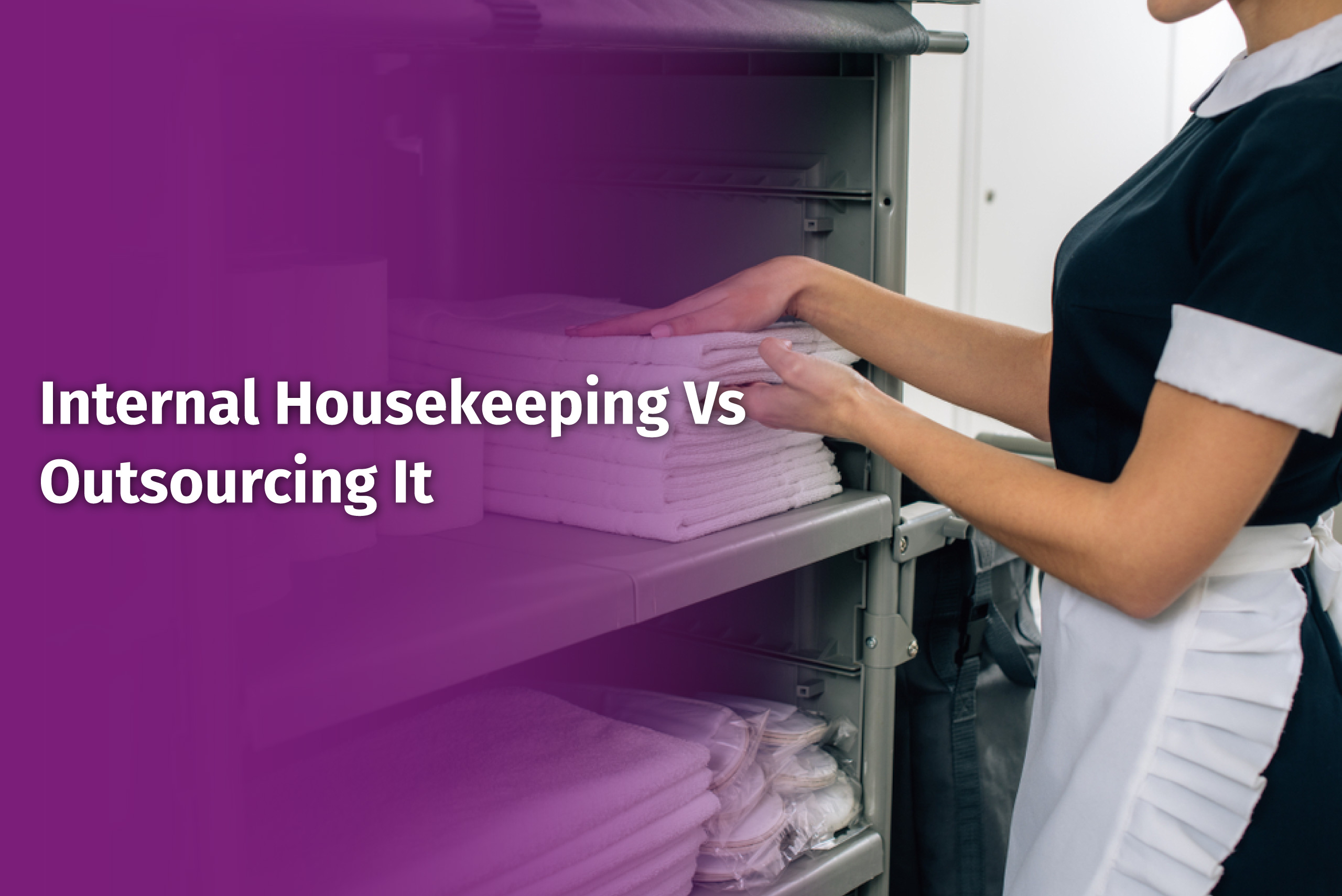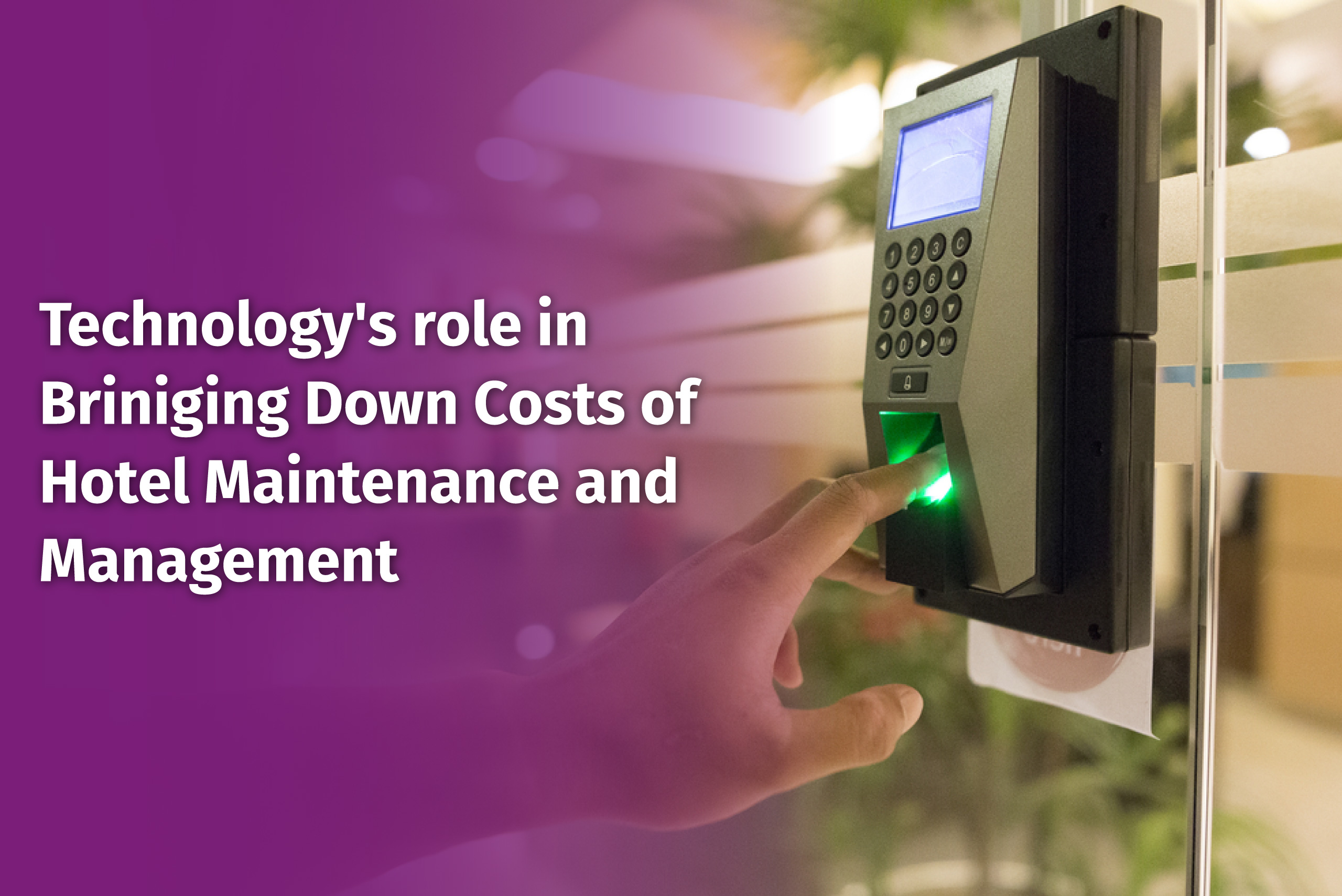Internal Housekeeping Versus Outsourced Housekeeping- Both Sides of The Coin Explained
Comparing Internal Versus Outsourced Housekeeping: Which Side Is Better?
The travel and tourism industry has taken a major hit after the pandemic, leading to many hospitality establishments opting for a complete overhaul of the existing procedures. The major driver for this change has been the need to manage the cost, especially when the tourism and travel industry is at an all-time low. With that in effect, the first costs that hospitality establishments aim to cut are labor costs, which are the highest chunk of the total operating expenses.
Outsourcing housekeeping has become a controversial decision of late, with labor unions rallying against it (owing to mass-scale layoffs by players such as Hyatt and Novotel Paris. However, it has some prominent benefits that make it feasible in the contemporary scenario. Outsourcing has ended up becoming the go-to solution for most hotels and similar institutions where housekeeping is required. The top reason for this shift is to save costs wherever possible until the industry gets back on its feet.
Whether your hotel needs to outsource its housekeeping or internalize it is a matter of requirement. Let us discuss that in detail.
The Positives
Both internalized and outsourced housekeeping have their own set of benefits (and disadvantages). Let’s look at the benefits first.
1. Pros of Internalized Housekeeping
While hiring your staff and training them internally does require an initial investment, it entails certain advantages that outsourcing can’t provide. The first benefit is that the staff you hire is trained in your brand values. For a name established in the industry, hospitality is the prime driver – which comes from the staff. Behavior and conduct training, teaching the staff the tenets of your brand, and creating genuine brand value from their professionalism are the primary reasons why these industry leaders always have their own housekeeping crew.
The second advantage is an indirect derivative of generating better employment opportunities for professionals in this sector. Outsourcing agencies focus on providing budget services, which doesn’t really leave the staff with much to earn – and it is here that internalized staff earns a higher income. They have entitled to perks and benefits that the brand policy chalks out (which keeps labor unions happy too). Internalizing housekeeping results in better quality work; this matters again in brands that bank on the little details.
2. Pros of Outsourcing Housekeeping
The major benefit of outsourcing is always savings. Since these agencies handle housekeeping professionals for various brands at once, the economy of scale comes into play and reduces housekeeping costs to establishments.
Another reason the hospitality industry prefers to outsource housekeeping is that it gives them flexibility in scheduling the roster for staff. The hotel need not always function fully staffed – and with outsourcing, it is possible to schedule more hands-on-deck during the busy season and reduce staffing during the off-season. A few other reasons why hospitality establishments choose to outsource housekeeping are:
- Offsetting liabilities.
- Reduced load on management.
- Flexible resources.
Both modes of housekeeping stand their ground with their respective collection of advantages. Based on what your establishment requires, you can make a decision. Before doing so, however, let us consider the other side of the picture.
The Drawbacks
Internalizing or outsourcing housekeeping depends on the kind of results you are seeking from your team. With this as the starting point, it is important to be familiar with the negative points associated with both.
1. Cons of Internalized Housekeeping
The first major drawback of having your own housekeeping team today is the budget needed to sustain it. Your housekeeping fleet is hired based on busy-season statistics: which means during the off-season, you would be overstaffed and loaded with payroll to observe. This isn’t very efficient when your establishment is trying to survive or cut costs somewhere.
The second problem with internalized housekeeping is staff supervision, training, and management. The housekeeping crew is your own staff, and their administrative and managerial responsibilities rest on you. Pay hikes, bonuses, appraisals, training, etc. all fall under the ambit of the brand.
2. Cons of Outsourcing
While it does look attractive to outsource hotel housekeeping, it comes with certain disadvantages too. Your brand practically is left with little to no control over the outsourced staff. Being outsourced, there is a lack of accountability in the crew which may cause problems for your guests. The quality of work that outsourced crew delivers isn’t always at par with what an internalized housekeeping arrangement can achieve.
Secondly, there is no guarantee of the same individuals turning up to work – the staff is completely replaceable, making it problematic to train and educate each new one according to the brand guideline.
The Final Decision
Based on the pros and cons of both modes of housekeeping, here are the final thoughts:
- For hotels more conscious about maintaining certain conduct within the premises, internal housekeeping is the better choice.
- For establishments looking to cut costs without compromising on the basics, outsourcing housekeeping is the best way.
Conclusion
Whether you decide to outsource or to internalize housekeeping, you must write down your priorities and goals for these professionals. You can then easily plan for whatever your hotel faces in the future and make an informed decision on the matter.













